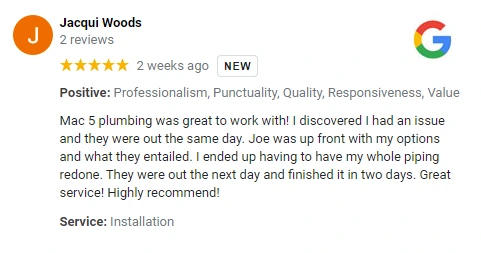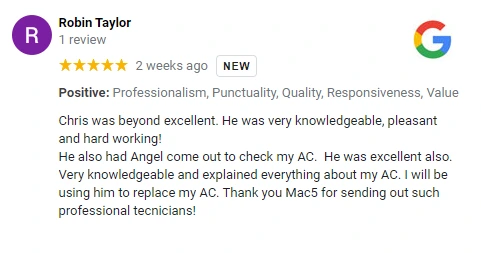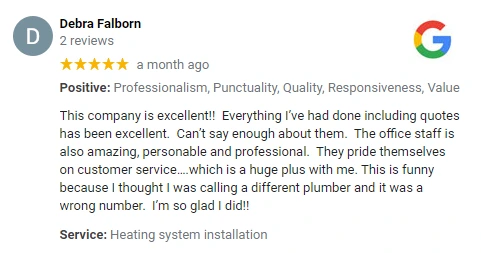Calcium buildup on faucets isn’t dangerous, but they are unsightly. They are a build-up of mineral deposits and dull the shine of a water outlet, like a shower or faucet head. Our water supply is often saturated with various minerals and sometimes gets stuck on different parts of our plumbing system.
While we think they may be residue from skin or hair care products, these stains are actually mineral deposits from our water supply. They are natural and pose no dangers to our health.
However, calcium buildup on faucets can be bothersome. Don’t worry! You can remove calcium buildup easily to keep our plumbing fixtures pristine. With a little white vinegar, paper towels, and good old baking soda, that chalky faucet tip will be spotless in no time.
What Do Calcium Deposits Look Like?
If you notice cloudy white spots on your silver plumbing fixtures, don’t panic. They are natural mineral buildup saturating the metal.
You might spot them on your shower floor, sink drain, or faucet head. If your shower floor is saturated with calcium buildup, it might look cloudy or murky. The discoloration isn’t permanent, but you should clean it up sooner than later.
The calcium deposits can stick to the glaze or coating of your bathroom tiles; cleaning sufficiently might chip away at the color and leave them dull or damaged. If the colors around your home’s water outlets seem pale or blurry, you need a water softener.
What is Calcium Buildup?
Also called limescale, calcium buildup is the chalky particles enveloping your water outlets and floors.
Mineral deposits are a build-up of magnesium, potassium, calcium, and other minerals. While prominently referred to as a calcium buildup, it isn’t exclusively calcium. Various minerals collecting in your water supply produce “hard water.”
Is Hard Water Safe?
Hard water isn’t toxic and is safe to drink, but it won’t taste pleasant. Don’t drink hard water if you have a weak stomach to prevent vomiting and diarrhea, eventually leading to dehydration. Chronic dehydration is a serious problem and will have you reaching for more tap water, only perpetuating the issue.
If you have trouble sleeping at night, a decreased appetite, lethargy, and moderate to severe headaches, you might suffer from dehydration without knowing it. While adults might be able to notice the similarities with acute dehydration and can act on it immediately, you need to know the signs if your children are also consuming hard water.
If you and your family have no problem consuming above-average mineral content, there is no cause for concern regarding health issues. However, you must do something about your hard water problems if you exhibit more symptoms.
Faucets: Calcium Buildup or Hazardous Particles
You can tell the difference by how they smell, look, or feel. Calcium deposits are harmless, chalky-looking, nearly smooth to the touch, and odorless.
Industrial drain cleaners, polish, and plumber’s putty is considerably more toxic elements lingering in your plumbing fixtures. The worst-case scenario is something is stuck in your pipes and contaminating your pipes, affecting your water supply.
Call for an expert plumbing inspection so you aren’t left guessing whether you are dealing with hazardous risks or not.
What Causes Calcium Buildup?
Calcium buildup comes from our water supply and not your plumbing system. It is naturally occurring calcium carbonate or calcium bicarbonate that causes discoloration.
Everywhere water is sourced, including the ocean, has calcium salts. Saltwater carries dissolved calcium salts at a rate of 400 parts per million (PPM), which means there is a concentration of at least .4 milliliters (ML) of calcium per 1 liter of water.
These minerals, especially calcium deposits, occur organically in nature. There’s nothing wrong with your local water tank, well, or plumbing. While your plumbing has nothing to do with its production, integrating a water softener system can prevent calcium buildup.
Why it’s Best to Remove or Prevent Calcium Buildup?
Water softeners can prevent calcium buildup on faucets and pipes. While they are harmless on water outlets, they may affect water pressure.
Without a water softener installed in your plumbing system to dissolve calcium deposits, your home may eventually require pipe replacement. Non-toxic or harmless to your health doesn’t necessarily mean “safe” everywhere else.
If you inspect your pipes and notice a rusty or yellow hue, they aren’t just regular water stains. Minimal calcium build-up partially clogging your pipes may affect water pressure, leading to your faucet to trickle unevenly and causing water stains; enough can clog pipes and shut off the water supply from your faucet completely.
Cleaning faucets, showerheads, and drain covers are easy. You can remove calcium buildup with a few household items such as:
- Baking soda
- White vinegar (or lemon juice)
- Paper towels
- Rubber band and sandwich bag or any plastic bag (to clean faucet aerator)
- Wet sponge
- Rubber gloves
- Clean cloth (textured cloth optional)
- Several paper towels (a reusable paper towel)
- A spray bottle (if you have one)
How You Can Remove Calcium Buildup?
Water faucets are the easiest outlets you can clean. They are the most accessible plumbing fixture prone to the grimy white buildup.
You will need the household items listed above and a few hours to remove the calcium buildup. The sandwich bag isn’t for the faucet tip but for the faucet aerator within it.
You can opt for muriatic acid, but it may be too strong. Anything with citric acid, like lemon juice, is an organic yet reliable “magic eraser” to keep your faucet clean. Any magic eraser, whether industrial or organic, can help you remove the calcium buildup.
These gentle alternatives are strictly for surface calcium build-up and work well with a water softener system. Still, no magic eraser can save you from damage necessitating pipe replacements.
Do It Yourself: the Power of Baking Soda, White Vinegar, and Paper Towels
Wear rubber gloves and goggles if you have sensitive skin or eyes, and get to it!
- Gather all your cleaning supplies.
- Drench cleaning cloths in acidic liquid (lemon juice or white vinegar)
- Wrap drenched clothes around the contaminated area.
- Fill a plastic bag with acidic liquid and tie it around the faucet aerator (if you have a grimy aerator), ensuring it is fully submerged in the liquid.
- Secure the cloth and bag around the faucet with a rubber band.
- Let it sit for at least an hour.
- Take the cloth and bag off the faucet.
- Collect warm water from a different outlet.
- Dip a sponge in warm water.
- Use the sponge to wipe off any residue.
This technique is also effective in cleaning other scale-caked elements. Let your shower, bidet, or faucet dry before running water again.
While this trick works better for industrial cleaners that are too strong and more effective than other gentle organic compounds, you should call for expert treatment if it is a recurring issue.
Don’t keep cleaning up mineral deposits around your home and consider them dealt with. An ounce of prevention is still better than taking various curative measures to deal with the problem after the fact. Remember, you are only cleaning the surface!
You need to get to the bottom of the issue and find ways to remedy the problem there. The source is almost always hard water, and installing a water softener system can prevent buildup or at least lessen the frequency of cleaning them up.
Who Should I Call in Florida?
Many residents hesitate to call for professional help. If you are reluctant to call the experts for assistance due to financial concerns, don’t forget that remedying long-term issues is more costly than dealing with minor ones.
Mineral deposits mucking up your pipes require costly remediation. You can save money and more trouble if you have routine maintenance services. A professional plumber can advise you on the quality of your water supply and introduce a water softener into your plumbing before any calcium builds up on your fixtures.
You should stick with well-known agencies. You may save a few bucks enlisting an independent plumber online, but without reputable affiliations, you might be scammed out of repair fees and left with worse damage.
Trust contractors with client recommendations and an established presence. You might spend a little more on these professionals, but you won’t be sorry later.
Mac5 Services
If you want quality service in Melbourne, Florida, we got the guys for you! Mac5 Services are the experts you can trust for all kinds of plumbing remediation.
Our team will help maintain your installations and keep you from unwarranted risks that most homeowners don’t even know to watch out for. We can ensure you and your family only use and consume pristine water.
Call us for water filtrationconsultation and installation.
We can also help you save time and money by keeping all installations and integrations running smoothly and safely.
If you need urgent plumbing assistance or suspect a shift in your home’s water pressure, you can trust our leak detectionservices to guide you.




No Comments yet!